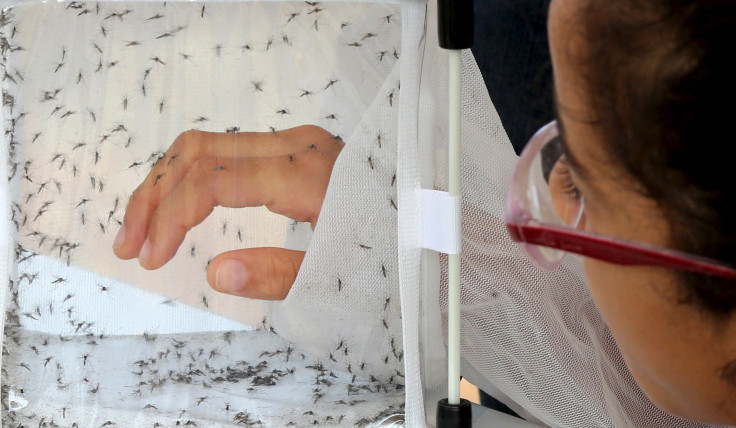UK Company Develops Genetically Modified Mosquitoes To Combat Dengue; Six Million Released In Brazil

Mosquitoes in Brazil are in the phase of killing its own kind. A company from the United Kingdom released millions of genetically modified mosquitoes in Piracicaba, Brazil to combat dengue fever and try to cut-down the annual rate of 50 million infections worldwide.
The Oxitec of Abingdon has bred mosquitoes in Brazil to eradicate disease-bearing mosquitoes. These mosquitoes were developed to crash the local population before they can transmit dengue virus to residents in the Piracicaba city, Brazil.
The biotech company aims to overcome the area with the genetically-modified mosquitoes to outnumber native males and prevent the decease-transmitting insects to produce offspring. The primary targets of these male mosquitoes, called Aedes aegypti, are female mosquitoes responsible for the 50 million dengue fever infections recorded by the World Health Organization.
Oxitec developed a flawed gene in the mosquitoes that will cause the larvae to die before it matures. The mosquitoes were released in the wild to mate with native females and inherit the fatal gene to its offspring, causing its death during its larval stage.
The Oxitec team has been testing their method in the Cayman Islands, Panama and Brazil to cut down the population of mosquitoes that can infect people with dengue fever. The said company have already released more than six million male mosquitoes since April throughout the city of Piracicaba to reduce the native mosquito population.
Months after the test, the population of dengue transmitting mosquitoes successfully decreased in the Brazilian city by 95 percent in one test trial, according to the results released by the Oxitec team in the scientific journal, PLOS Neglected Tropical Diseases. Researchers concluded that the modified mosquitoes are more effective than pesticides and that the test opens the possibility to prevent the decease to be epidemic in the future.
Researchers observed through pot-survey to monitor the activity of the mosquitoes and determine how effectively the native population is being decreased. Half of the proportion of red larvae laid at pots of water carries the gene from the genetically modified mosquitoes, according to the release.
Oxitec Chief Executive Hadyn Parry aims to expand the study into larger areas and prove the effectivity of the study. “We hope that if it does, we can expand to a larger number of areas,” he said. According to the release, the study keeps on going to see the impact of decreasing the carrier number in minimising the disease transmission.
To contact the writer, email: darwinsamuelm.malicdem@gmail.com





















